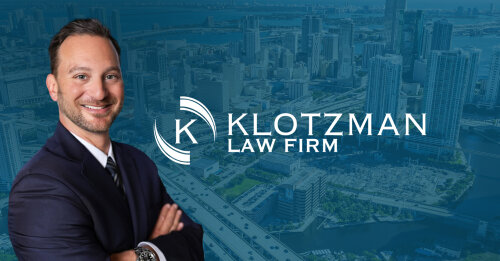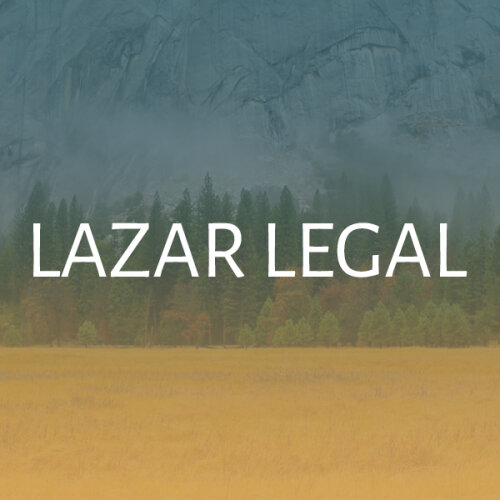Best General Litigation Lawyers in New York
Share your needs with us, get contacted by law firms.
Free. Takes 2 min.
Or refine your search by selecting a city:
List of the best lawyers in New York, United States
About General Litigation Law in New York, United States
General litigation in New York refers to the broader process of resolving legal disputes between parties through the civil court system. Litigators handle a wide variety of cases, including breach of contract, personal injury, property disputes, employment matters, and more. Rather than focusing on a specific area of law, general litigation encompasses almost any type of legal disagreement that does not fall under criminal prosecution. In New York, the litigation process can include negotiation, mediation, arbitration, court proceedings, and appeals. The state has its own rules and procedures, which can be complex and often require professional guidance to navigate effectively.
Why You May Need a Lawyer
People may require a lawyer in general litigation for many reasons. Common situations include disagreements over business contracts, landlord and tenant disputes, shareholder or partnership disputes, employment issues such as wrongful termination, personal injury claims, defamation, construction disputes, and property boundary arguments. Even if you feel confident about your position, navigating New York's court procedures can be overwhelming. A lawyer can help you evaluate the strength of your case, prepare legal documents, represent you in negotiations or court, and ensure that you do not miss critical deadlines. Having legal counsel often leads to better outcomes, whether you are pursuing a claim or defending against one.
Local Laws Overview
New York civil litigation is governed by a combination of state statutes, local rules, and court practices. The New York Civil Practice Law and Rules (CPLR) sets forth procedures for filing lawsuits, serving documents, and managing cases. There are strict statutes of limitations, which require you to file your case within a set period. New York courts include Supreme Courts in each county for general civil matters, as well as lower courts such as Civil Court and District Court for smaller claims. Discovery rules require the exchange of documents and information. There are rules about how evidence is presented, and all parties must comply with court orders and deadlines. New York also encourages alternative dispute resolution, including mediation and arbitration, to resolve cases before trial. Understanding these rules is critical for anyone involved in general litigation.
Frequently Asked Questions
What types of cases are considered general litigation in New York?
General litigation covers a wide range of civil disputes such as contract issues, personal injury claims, property and real estate conflicts, partnership or shareholder disagreements, employment law matters, and business torts.
How long do I have to file a lawsuit in New York?
The statute of limitations varies based on the type of case. For example, most contract disputes have a six year limit, while personal injury claims must generally be filed within three years. Consulting with a lawyer is important to determine the precise deadline for your case.
What courts handle civil litigation matters in New York?
The New York State Supreme Court in each county handles larger civil matters. Lower courts, such as Civil Court, District Court, and City Courts, handle claims involving smaller dollar amounts or certain types of disputes.
Do I have to go to trial to resolve a dispute?
Not always. Many cases settle before reaching trial through negotiation, mediation, or arbitration. Courts in New York often encourage alternative dispute resolution to save time and money.
How much does it cost to hire a litigation attorney?
Costs can vary greatly depending on the complexity of the case, the attorney's experience, and whether the case goes to trial. Some attorneys charge by the hour, while others may offer contingency fee arrangements in certain types of cases, such as personal injury.
What happens after I file a lawsuit?
After filing, the defendant is served with papers, and both parties exchange information during "discovery," a period for gathering evidence. The case may settle at any stage, but if not, it will proceed to trial where the judge or jury will decide the outcome.
Can I represent myself in a general litigation case?
You are allowed to represent yourself, but the legal process can be complex and difficult to navigate without legal training. A lawyer can help protect your rights and improve your chances of success.
How is evidence handled in New York civil cases?
Each side must share relevant documents, records, and other information during the discovery process. Evidence must be obtained legally and disclosed according to court rules. The judge decides at trial what evidence can be considered.
What are my options if I lose my case?
You may have the right to appeal the decision to a higher court, but there are strict deadlines and legal grounds for appeals. An attorney can help you determine whether an appeal is possible and worth pursuing.
How can I check the status of my case or court dates?
Public civil case information is often available through online portals provided by the New York State Unified Court System or by contacting the court clerk in the county where your case is filed.
Additional Resources
- New York State Unified Court System: Provides information about court locations, forms, and procedures. - New York City Bar Association: Offers legal referral and educational resources. - LawHelpNY: A platform with guides and resources for individuals representing themselves. - New York State Department of Law (Attorney General's Office): Handles consumer complaints and provides general legal information. - Legal Aid Societies: Offers free or low-cost legal help to qualified individuals facing civil litigation.
Next Steps
If you believe you may be involved in a legal dispute or have received court paperwork, act quickly to protect your rights. Gather all related documents and details about your case. Consider contacting a qualified litigation attorney who can review your situation, advise you of your rights, and explain your options. Many lawyers offer initial consultations, where you can ask about fees, timelines, and strategy. If you cannot afford a private attorney, explore free legal aid resources or contact state or local bar associations for attorney referral services. The earlier you seek legal advice, the better your chances are of achieving a favorable outcome in your case.
Lawzana helps you find the best lawyers and law firms in New York through a curated and pre-screened list of qualified legal professionals. Our platform offers rankings and detailed profiles of attorneys and law firms, allowing you to compare based on practice areas, including General Litigation, experience, and client feedback.
Each profile includes a description of the firm's areas of practice, client reviews, team members and partners, year of establishment, spoken languages, office locations, contact information, social media presence, and any published articles or resources. Most firms on our platform speak English and are experienced in both local and international legal matters.
Get a quote from top-rated law firms in New York, United States — quickly, securely, and without unnecessary hassle.
Disclaimer:
The information provided on this page is for general informational purposes only and does not constitute legal advice. While we strive to ensure the accuracy and relevance of the content, legal information may change over time, and interpretations of the law can vary. You should always consult with a qualified legal professional for advice specific to your situation.
We disclaim all liability for actions taken or not taken based on the content of this page. If you believe any information is incorrect or outdated, please contact us, and we will review and update it where appropriate.
Browse general litigation law firms by city in New York
Refine your search by selecting a city.

















